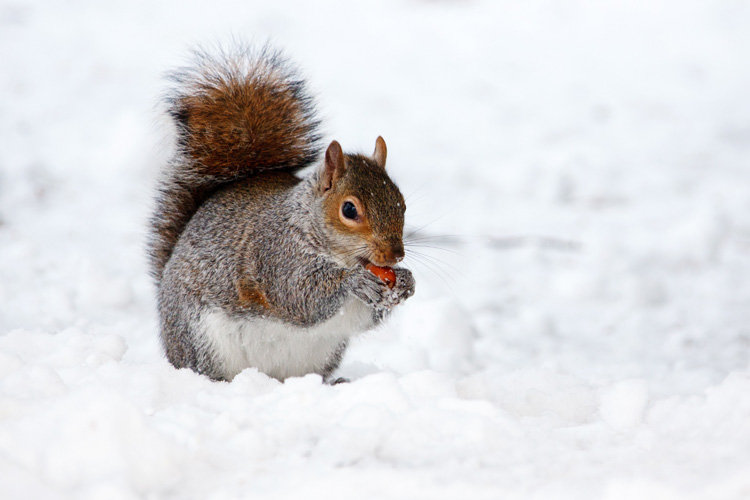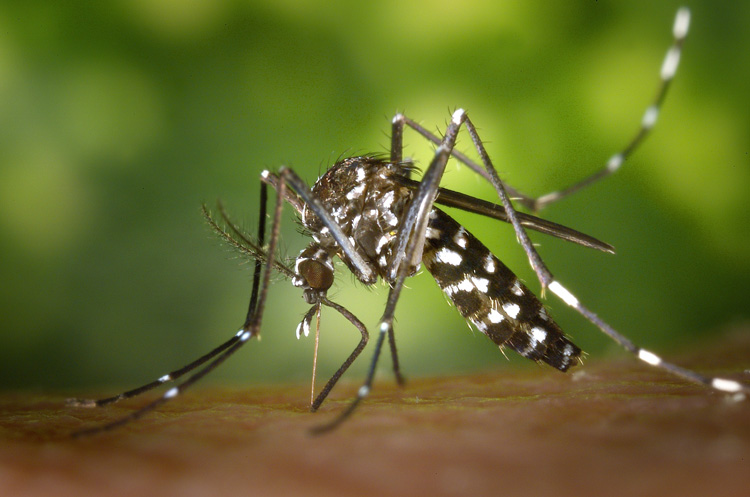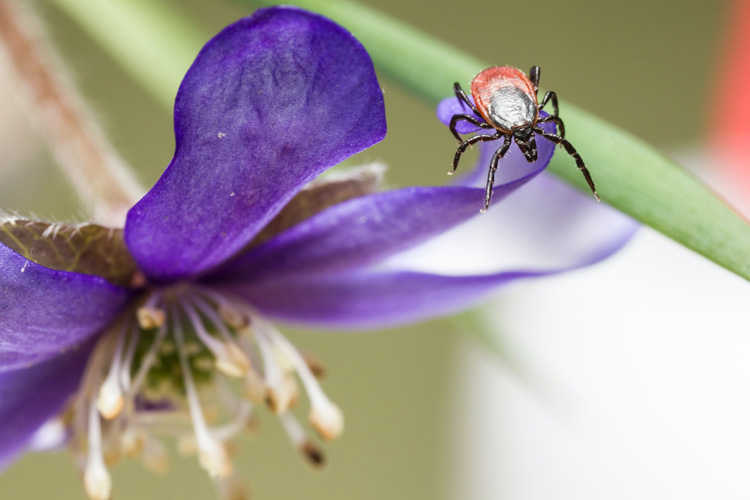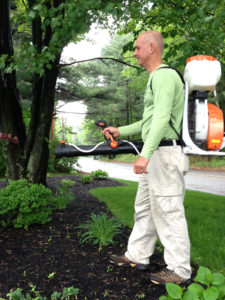Worcester, Mass was declared the snowiest US city on February 2. If you are thinking this is good news for mosquitoes and ticks in the spring, think again.
Obviously, massive snowfall puts us all in a lurch. With nearly 53″ of snowfall this winter, Worcester is the reigning snowiest city in the United States. Central Massachusetts is no stranger to winter snow. What else is prevalent in our area, outside of winter? Mosquitoes and ticks! Is the 2021 nor’easter a good thing for these Central Mass pests? You might be surprised at the answer.

Will the nor’easter mean less mosquitoes and ticks this spring?
Will mosquitoes survive the snowfall and winter temps?
Sadly, for Central Mass residents, even large snowfall does not mean that we will have less mosquitoes in the spring. While winter temperatures consistently below 45-50°F can eliminate mosquitoes, it is important to know that mosquitoes have adapted to winter temperatures. Some will die in harsh winter conditions, while others will lie dormant beneath ground waste until temperatures rise. What’s more, mosquito eggs can survive being frozen in winter ice, and hatch in the spring.

Snowfall does not kill mosquitoes.
Nor’easters can mean more mosquitoes in the spring!
This might seem odd at first, but it makes sense if you think about it! What is required for mosquitoes to reproduce? First, female mosquitoes require a blood meal. When they “bite” humans, livestock, and pets, they are seeking a reproductive blood meal. The second thing that is required for mosquitoes to procreate is water. Large winter snowfalls equate to a wet spring. When dormant mosquitoes emerge and begin biting, they have plenty of options for laying their eggs. Puddles, water gathered in gutters, storm drains, literally anywhere there is a small amount of standing water is a great place for a mosquito to lay her eggs.
Will snowfall kill ticks?
Snowfall will not kill ticks. Much like mosquitoes, ticks will enter a period of dormancy in the winter. When temperatures fall below 45-50°F tick activity slows. They will nest in mulch, yard waste, and in the nests of other animals, such as mice. The white-footed mouse is the most prevalent vector for the bacteria that cause Lyme disease. When ticks feed on the blood of these mice, they obtain Lyme bacteria. They can then transmit the bacteria to humans and pets. This is why wintertime tick control is so important. Tick tubes are an essential tool in eliminating ticks in the winter. They are much more apt to kill ticks than harsh winter weather. In fact, it takes consistent temperatures below 10°F to have any effect on the tick population.

Ticks will emerge in the spring, even after a snowy winter.
Also read: Can I get a tick bite in the fall or winter?
Global warming has give us much milder winters. We cannot count on Mother Nature to eliminate ticks for us. We must be proactive in our tick treatment efforts, by employing year-round tick control around our homes. The only thing that means less ticks in the springtime, is using tick tubes in the fall and winter.
Snowy Worcester winters call for Gardner mosquito removal.
It seems a terrible fate to have both a snowy winter and terrible mosquito season this spring. Not to worry! Call on a reputable mosquito and tick control company early this spring to begin your protection regimen. With barrier tick and mosquito protection, your family will be safer from vector-borne illnesses. The less chance you have of encountering mosquitoes and ticks, the better.
An EPA-registered yard spray can eliminate up to 95% of ticks and mosquitoes from your yard for a couple of weeks between sprays. All-natural sprays are also available. Rather than eliminating pests, all-natural formulas will repel them, and they work pretty well! You can expect to see up to 85% less ticks and mosquitoes around your home for up to two weeks between applications. The key is to begin at the first sign of springtime weather, and to continue protection all season long for mosquitoes, and all year long for ticks.

Dave Macchia, Central Mass Mosquito Control Expert
Also read: Where do mosquitoes go in the winter?

